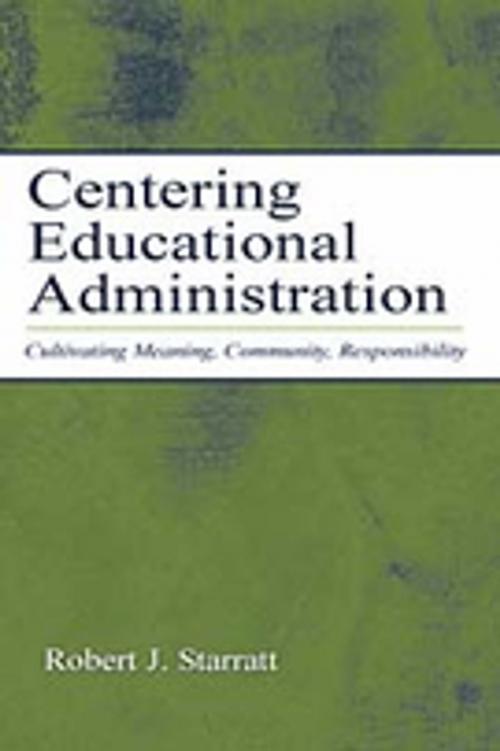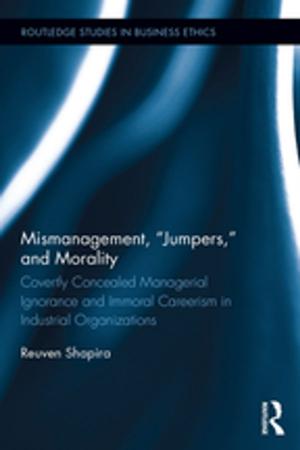Centering Educational Administration
Cultivating Meaning, Community, Responsibility
Nonfiction, Reference & Language, Education & Teaching, Administration| Author: | Robert J. Starratt | ISBN: | 9781135634216 |
| Publisher: | Taylor and Francis | Publication: | April 2, 2003 |
| Imprint: | Routledge | Language: | English |
| Author: | Robert J. Starratt |
| ISBN: | 9781135634216 |
| Publisher: | Taylor and Francis |
| Publication: | April 2, 2003 |
| Imprint: | Routledge |
| Language: | English |
In this book, Starratt enters the national conversation among educational administration scholars and practitioners about what constitutes the core of their knowledge and practice. In Part I, he develops three main themes--cultivating meaning, community, and moral responsibility--which he then positions against national themes about the core of educational administration: school improvement, democratic community, and social justice. Rather than focusing on the routine managerial tasks normally associated with school administration (budgeting, personnel and legal problems, time and resource management, etc.), this text asks aspiring school leaders to reflect first on the underlying philosophical and sociological perspectives that constitute the substance of administrative work in education. Centering Educational Administration provides:
*A Unique Perspective on Leadership--The author views leadership as organically related to teaching and learning, as concerned with internal capacity building in response to state-imposed accountability pressures, and as an existential process of writing one's autobiography through their day-to-day work.
*An Interdisciplinary View of Educational Administration--Centering Educational Administration asks educational administrators to bring contemporary philosophical, ethical, and anthropological issues, as well as learning theory, social theory, and political theory into their thinking about the daily operation of the school.
*A Unique Perspective on School Improvement--This text asserts that school improvement narrowly defined as improving results on high-stakes tests can likewise place the nation at risk. An equally important agenda is teaching the young the basic satisfactions, norms, and potential of using their knowledge in the service of the community and of a wider humanity.
*Exercises in Reflective Practice--This book challenges the reader to use the ideas of each chapter to analyze the current practices in their school and to propose concrete changes to improve the teaching and learning environment of their school.
In this book, Starratt enters the national conversation among educational administration scholars and practitioners about what constitutes the core of their knowledge and practice. In Part I, he develops three main themes--cultivating meaning, community, and moral responsibility--which he then positions against national themes about the core of educational administration: school improvement, democratic community, and social justice. Rather than focusing on the routine managerial tasks normally associated with school administration (budgeting, personnel and legal problems, time and resource management, etc.), this text asks aspiring school leaders to reflect first on the underlying philosophical and sociological perspectives that constitute the substance of administrative work in education. Centering Educational Administration provides:
*A Unique Perspective on Leadership--The author views leadership as organically related to teaching and learning, as concerned with internal capacity building in response to state-imposed accountability pressures, and as an existential process of writing one's autobiography through their day-to-day work.
*An Interdisciplinary View of Educational Administration--Centering Educational Administration asks educational administrators to bring contemporary philosophical, ethical, and anthropological issues, as well as learning theory, social theory, and political theory into their thinking about the daily operation of the school.
*A Unique Perspective on School Improvement--This text asserts that school improvement narrowly defined as improving results on high-stakes tests can likewise place the nation at risk. An equally important agenda is teaching the young the basic satisfactions, norms, and potential of using their knowledge in the service of the community and of a wider humanity.
*Exercises in Reflective Practice--This book challenges the reader to use the ideas of each chapter to analyze the current practices in their school and to propose concrete changes to improve the teaching and learning environment of their school.















